Sumao Ishihara
출생 : 1903-05-01, Kobe, Hyōgo Prefecture, Japan
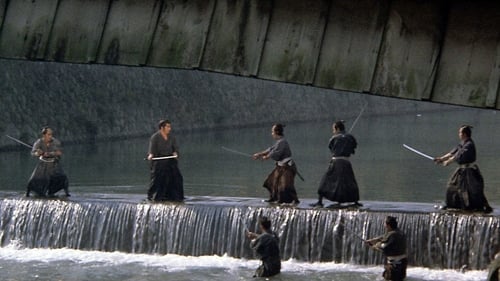
오가미 이토는 한때 누구도 당해내지 못하는 최고의 검술 실력을 자랑했지만, 지금은 반역자의 누명을 쓰고 야기유 가문에게 쫓기고 있는 신세다. 그것도 어린 아들을 동반한 채. 두 당 500냥을 받으며 비정한 자객의 삶을 살아가는 그에게 어느날, 아와 지방으로부터 암살 의뢰가 들어온다. 옷감에 쪽빛을 내는 비법으로 고소득을 올리고 있는 아와 지방. 막부는 이 아와 지방의 염료 수익에 눈독을 들여 그들의 이익을 착취하려고 한다. 그리하여 막부는 쪽의 재배 비결을 알고 있는 아와의 명주 마쿠야를 납치할 요량으로 무사 삼인방 벤, 덴, 라이를 보낸다. 형제로 구성된 이 삼인방은 가공할만한 검술 실력을 자랑하고 있어 천하에 두려울 것이 없는 야기유 일가조차도 맞서기를 주저할 정도로 흉폭하고 잔혹하기 짝이 없는 이들이다. 그리고 아와 지방으로부터 의뢰를 받은 비운의 검객, 이토가 바로 이 삼형제의 마쿠야를 없애야 하는 것이다. 그러나 이토 역시 야기유의 추적을 받고 있기 때문에 삼형제를 대적하기 앞서 야기유의 닌자를 따돌려야하는 위기에 놓인다.

BLOOD END is one of the great unknown films from Japan's golden era of the late 1960's. Starring NAKADAI Tatsuya in one of his best roles, this is the story of the Mito Tengu Group who attempted to overthrow the Shogunate at the beginning of the Bakumatsu Period. Their political aspirations led to countless assassinations, as well as senseless killing of innocent people who got in their way. Sentaro (NAKADAI), a farmer who's been severely beaten for his outspoken defiance of the government and the high taxes during a time of famine is befriended by one of the group's leaders, KADA Gentaro (KATO Go) and joins up. This is the masterpiece of director YAMAMOTO Satsuo (who is best known for the first film in the NINJA, BAND OF ASSASSINS series) the erstwhile 'Leftist' director, who used his films to make his political points. Stunning fight choreography, and ultra-violence make this one of the bloodiest films of that era. A powerful film Rare classic!

Ichikawa Raizo’s last film. He plays a Yakuza enforcer who kills a man on his boss's orders. He’s then sent to a provincial town to lie low, only to be caught in another war orchestrated by his original boss who has set him up.

Passenger B
One of the nuns at Senjuan is Sister Shunko (Michiyo Yasuda). Unlike the usual nun, however, she often goes out to see the world, being of the opinion that nuns should not lead cloistered lives but should see something of modern life. She makes the acquaintance of a young girl named lkuko (Kayo Mikimoto) and saves her from the advances of a gangster named Goro (lchiro Nakatani). In the meantime she turns down several propositions and, in revenge, one of her admirers denounces her to the Mother Superior (Kuniko Miyake). This lady is of liberal views, however, and refuses to do anything about it. Then Shunko is visited by Goro's gang boss who wants lkuko back and says he will blackmail Shunko unless she agrees.

The first film in the 2 part series about Ryuzen, a renegade martial-arts priest who, in addition to breaking all the commandments against sex and gambling, opens his own gambling den in direct defiance of the local yakuza boss. Exciting action and a twisty plot this movie breaks new barriers in Japanese cinema. Katsu Shintaro is superb in one of his better non-Zato Ichi roles as he fights off the advances of a love-lorn woman and risks his life to defeat the powerful gambling boss who has a stranglehold on the town.
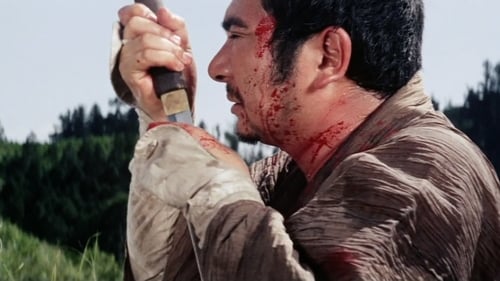
When a local gambling house kidnaps some peasants because they failed to pay their debts, a rival gambling house pays their debts and sets them free.

Third film of the yoidore hakase series

A sequel to the popular "The School of Spies", this film continues the adventures of one of the graduates who is assigned to crack a powerful spy ring working out of Kobe. Various people are suspected but, finally, it seems that an Army captain and his geisha friend might lead them to the ring.
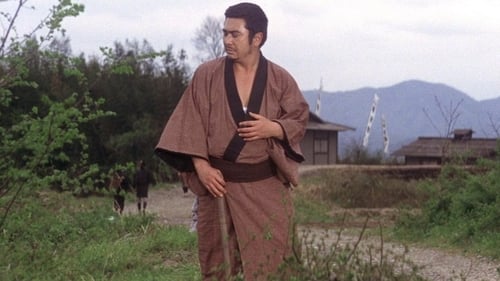
Zatoichi comes upon a dying man who asks him to give a bag of money to "Taichi". Zatoichi has no idea who this is but when he comes upon a small town harassed by gangsters, he finds that "Taichi" was the man's young son. Along his travels he also met a blind monk who makes Zatoichi question his murderous lifestyle. In trying to help the town, Zatoichi kills some gangsters and becomes a hero to the boy. He must make a choice of whether to use non-violence and set a good example, or violence and set the boy on the wrong path in life.

어느 한적한 마을을 찾아온 두 명의 남자. 한 사람은 아버지의 유품인 붉은 단도를 지닌 혈기왕성한 잇뽄마츠이고 또 한 명은 낭인 구로키 야이치로이다. 두 사람은 각각 5년 전 공무금 약탈사건으로 아버지를 잃고 아버지의 복수를 위해 살아왔다. 두 사람은 곧 마을의 사무라이를 의심하고 뒤를 캐던 중 또 다른 배후가 있다는 사실을 알아낸다. 그리고 두 사람은 서로의 아버지가 자신의 원수가 아닐까 의심하기 시작한다. (한국시네마테크협의회)
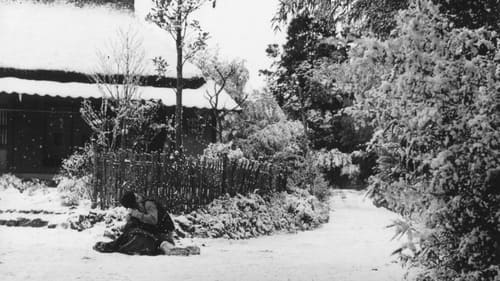
Based on a novel by Tsutomu Mizukami, this haunting melodrama focuses on a young bamboo worker who takes his father's prostitute as his wife.
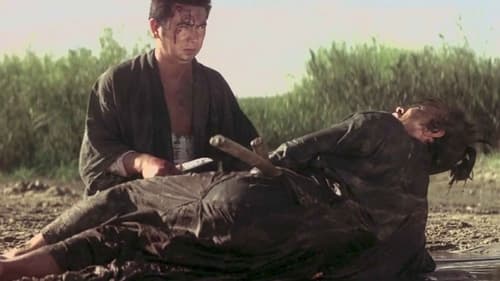
After arriving in the town of Shimonita, Ichi finds that a price has been put on his head by a local yakuza boss. He's drawn into a trap, but after hearing of the slaying of a former love, Ichi furiously fights his way through the entire clan to face the killer, a hired ronin.

As winds of change sweep Japan, an honest man joins the Shinsenhumi out of admiration for its leader and because he wants to live and die as a samurai. However, as his involvement grows, reality and idealism come into deadly conflict.

The Fencing Master tells the story of a man trying to survive as the only world he knows is becoming increasingly irrelevant. Danpei Ichikawa lives for swordfighting – he was once a renowned kabuki swordfight choreographer, and as the Chairman of the New National Theatre Company, he wants nothing more than to choreograph the swordfights for the modern plays put on by the company.
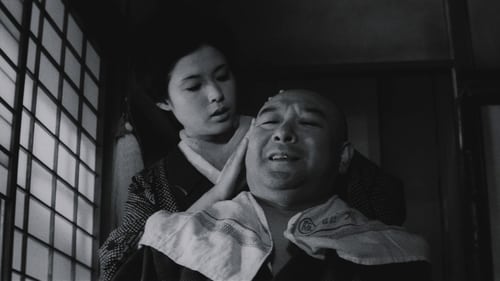
Kishichi Sengoku
교토의 사원을 무대로 주지 스님과 첩이 펼치는 애욕과 이를 차갑게 바라보는 동자승의 반역과 복수를 그린 문예대작. 문예영화의 진중한 분위기 속에서 어떠한 필연성도 없이 화장실의 장면이 등장하곤 하는데, 이러한 장면은 배설이라는 행위가 인간 본연의 모습을 가감 없이 보여주는 행위라고 생각한 가와시마의 영화에서 종종 보이는 설정이다. (2014 한국영상자료원 - 가와시마 유조 감독전)

An Indian prince leaves his world of comfort and riches behind to wander and meditate for six years in search of spiritual enlightenment. Siddartha (Cojoin Hong) turns his back on the old religion when people are starving needlessly and holy rituals include human sacrifices. During his meditations, he is tempted by erotic dancing women, demons, and the evil machinations of his criminal cousin. Devastate to attain the spiritual perfection and become the Buddha. He travels to convert followers by his kindness and wisdom, gaining a multitude of believers when he stops an elephant from crushing a local priest. Buddha of course goes on to become one of the great religious leaders of the world.

One of Japan's most popular stories is the tale of Kutsukake Tokijiro, a traveling gambler who finds that he must take care of the wife and child of a yakuza he had been forced by the code of the gamblers to fight man to man. In a brilliant performance from super-star Ichikawa Raizo, with strong support from two of the greats from Toho, Shimura Takashi (7 Samurai) and Aratama Michiyo (Sword of Doom) the heartfelt story reaches new heights. Tokijiro, having learned the true nature of the boss to whom he was obligated for having spent a night and eaten at the gang's headquarters takes up arms against them in a running battle fought across the back roads of the entire nation. Another powerful rendition of this superb story, it is not to be missed!
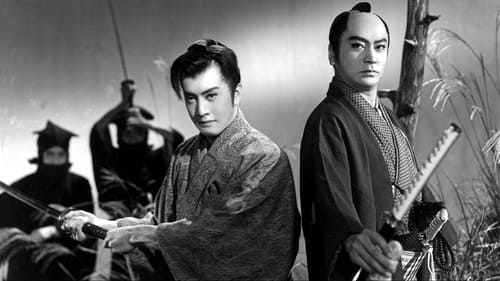
A gripping historical drama full of suspense and a mysterious bewitching mood. A puzzle of a turbulent era in which various characters fall into a maelstrom of events - a pretty girl, a strange beggar woman, a charming thief, a clever detective, the famous magistrate Toyama Saemon no jo, they all struggle to unravel this mystery of the white bell, which provoked the sudden disappearance of two beautiful women caught in one place at the same time at midnight.
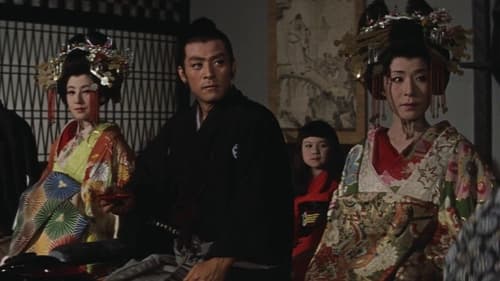
Quick lunch shopkeeper
The Dai-bosatsu toge trilogy is based on Kaizan Nakazatos unfinished long series of novels (41 books, written from 1913 to 1941). Set in the last period of the Tokugawa Shogunate, Daibosatsu Toge tells the story of Tsuke Ryunosuke, a nihilistic swordmaster who doesn't hesitate to kill anyone, bad or good.

During the 1200's, legendary Buddhist monk Nichiren returns from his studies to lead Japan out of moral crisis and prepare to fight Mongol invaders by creating a new form of Buddhism. He runs afoul of the existing Buddhist sects and their government supporters and is persecuted. Can Nichiren persevere before the Mogol fleet reaches Japanese shores?
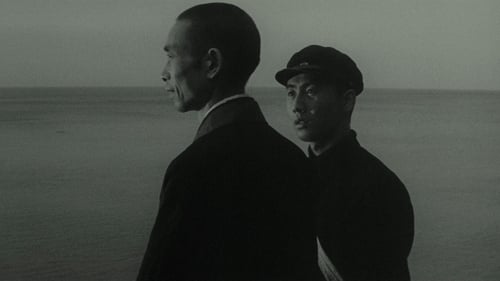
아버지의 유서를 갖고 교토의 취각사를 찾은 미조구치는 절의 아름다움에 푹 빠져 그곳에 머무르게 된다. 하지만, 속세에 물든 주지스님과 절을 찾는 관광객과 미군, 기생 등의 모습에 그는 걷잡을 수 없는 분노에 빠지게 된다.
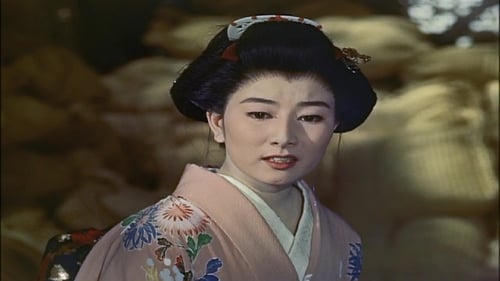
일본의 국민적 역사소설가 요시카와 에이지의 연재 소설을 영화화

Hostess
A poor peasant, after years of scraping, becomes a rich and powerful Osaka merchant. Mizoguchi Kenji's final project; he died before completing it and directing duties turned over to Yoshimura Kozaburo.
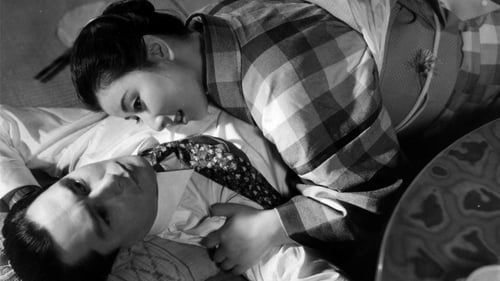
In Kyoto a young kimono maker with traditional ideas gets involved with a married professor.
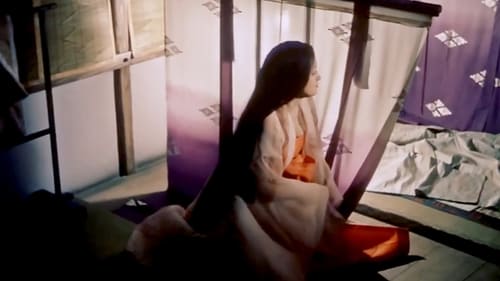
Special Forces commander Captain Tadamori returns to Kyoto after successfully defeating the uprising of pirates in the western sea of Japan. But because the high courtiers dislike career soldiers gaining power and influence, they ignore the will of ex-Emperor Toba and refuse to reward the captain. Reward recommender Lord Tokinobu is punished, and the captain sends his son Kiyomori to the Lord's residence, where he falls in love with Tokiko, the Lord's daughter. Meanwhile, Kiyomori finds out that he is possibly the ex-Emperor's son... Written by L.H. Wong
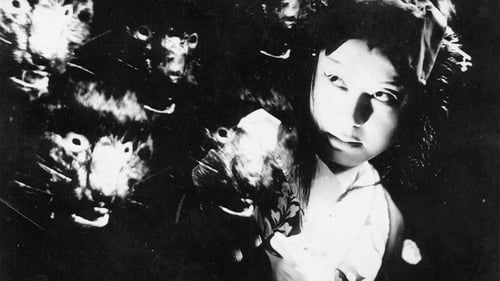
A kabuki actress is murdered. Her pet cat laps its mistress's blood and becomes a demon possessed by the vengeful murder victim.
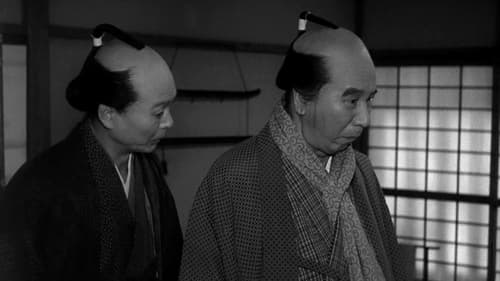
Inn head clerk
모헤이는 부유한 표구상 집안에서 달력 제작 전문으로 일한다. 주인집 마님 오상이 돈 문제로 어려움을 겪고 있다는 것을 알게된 그는 그녀에게 돈을 마련해주려다가 오히려 오해를 당해 오상과 불륜의 관계라는 오명을 뒤집어 쓰게 된다. 주인의 분노를 알게된 두 사람은 가출해서 비와호에서 몸을 던져 자살하려고 한다. 하지만 같이 도주하는 과정에서 두 사람에게는 진정한 애정이 싹트기 시작한다. 그리하여 두 사람은 목숨을 걸고 도피행을 계속하기로 한다.
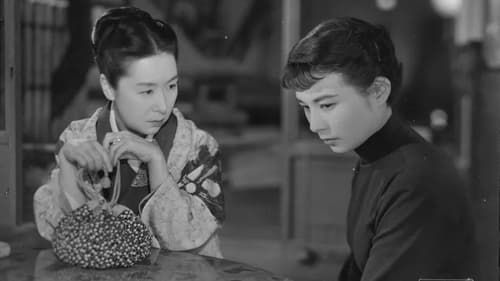
Store owner
남편과 사별한 후 하츠코는 교토에서 혼자 힘으로 유곽을 꾸려 나간다. 외동딸 유키코는 도쿄의 음악학교에서 공부하고 있다. 그런데 약혼한 지 얼마 되지 않았던 유키코가 돌연 자살을 시도하고, 놀란 하츠코는 도쿄로 달려가 유키코를 집으로 데려온다. 하츠코는 마음에 두었던 젊은 의사 마토바에게 유키코의 치료를 부탁한다. 상심해 있던 유키코는 마음이 통하는 마토바와 점점 더 가까워진다.
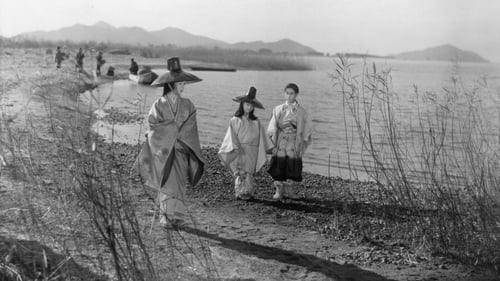
Yakko
여행 중 인신매매범의 손에 걸려 모친과 헤어지게 된 주시오와 안주의 오누이는 호족 산쇼다유에게 팔리게 된다. 노예나 다름없게 된 이 두 사람은 중노동에 시달리면서도 모친과의 재회를 꿈꾸며 하루하루를 보낸다. 그로부터 십년 후 여전히 산쇼다유의 수용소에 갇혀있는 이들은 어느 날 새로 들어온 젊은 여인이 부르는 노래에 자신들의 이름이 들어있는 것을 알고는 깜짝 놀란다.
인신매매가 횡행하는 헤이안 시대를 배경으로 부모 자식 간의 애정 그리고 인신매매 등의 인권 문제를 그리고 있는 작품으로, 단순한 이슈로서의 사회성을 인간 조건의 비극성에까지 끌고 간 걸작이다.
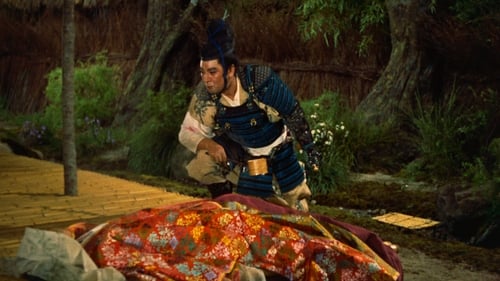
Pot Salesman
12세기 에도 시대, 곳곳에서 반란이 일어나고 혼란과 공포가 교토를 뒤덮는다. 교토의 산조성 또한 공격을 당하고, 왕족인 키사는 젊은 사무라이 모리토에게 구출된다. 이때의 인연을 시작으로 모리토는 그녀를 사랑하게 되지만 키사는 벌써 모리토 보다 계급이 높은 사무라이 남편이 있는 몸이다. 모리토는 충성스러운 사무라이지만 그녀를 향한 사랑 때문에 결국 이성을 잃게 되고 키사의 고모까지 인질로 잡으면서 키사를 자기 것으로 만들려고 한다. 일본에서 처음으로 이스트만 컬러를 사용한 작품으로, 화려한 색감과 의상으로 한 순간도 눈을 떼지 못하게 만든다. 기쿠치 칸의 역사극을 영화화했으며, 1954년 칸 영화제 그랑프리를 수상했다.
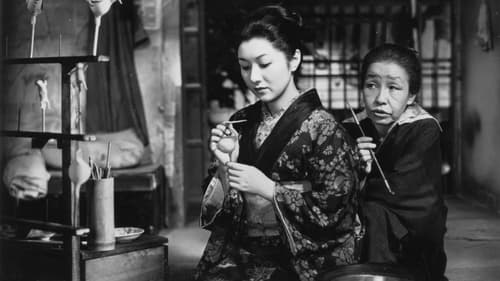
Kokichi
문인들이 많이 드나들기로도 유명한 전통의 화류가인 교토의 기온 거리. 이 거리에서 오랫동안 게이샤로 일해 왔던 미요하루의 집에 어느 날 어린 여자아이가 찾아온다. 그녀의 이름은 에이코. 어머니를 잃은 그녀는 무희(마이코)가 되기를 원해 미요하루에게 찾아온 것이다. 무희로 제대로 만들기 위해서는 적지 않은 비용이 든다. 하지만 어떤 고생이라도 감수하겠다는 에이코의 열성에 감탄한 미요하루는 그녀를 받아들이기로 한다.
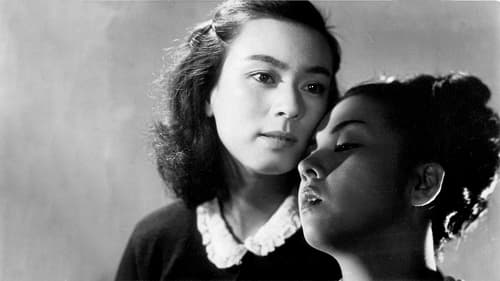
기온의 게이샤 오키쿠의 딸로 무언가에 대한 반발심에 만나는 남자를 수시로 갈아치우는 기미쵸(君蝶)와 시청에서 근무하는 여동생을 비교하며 화류계를 리얼하게 묘사함. 각본 신도 가네토가 미조구치 겐지에의 오마쥬로 써내려간 작품.

19세기 말의 도쿄, 기쿠노스케는 가부키계 명가에 양자로 들어간다. 그러나 기쿠는 자신을 향한 후한 평가는 모두 아버지의 후광에 힘입은 것이며 등 뒤에선 모두 자신을 흉본다는 것을 안다. 집안의 유모 오토쿠만이 기쿠의 단점을 솔직하게 지적하고 격려한다. 그러나 기쿠가 하녀와 가까이 지내는 것을 염려한 집안에서는 오토쿠를 내쫓고 그녀를 사랑한 기쿠는 오토쿠와 함께 떠나게 되는데...

dir: Teinosuke Kinugasa

Two cowardly palanquin carriers know the culprit of a murder but are too scared to report it to the police. In the mean time, an innocent man is arrested as the murderer and chaos ensues. Pre-war jidaigeki film.

Kajimura
This 1932 adaptation is the earliest sound version of the ever-popular and much-filmed Chushingura story of the loyal 47 retainers who avenged their feudal lord after he was obliged to commit hara-kiri due to the machinations of a villainous courtier. As the first sound version of the classic narrative, the film was something of an event, and employed a stellar cast, who give a roster of memorable performances. Director Teinosuke Kinugasa was primarily a specialist in jidai-geki (period films), such as the internationally celebrated Gate of Hell (Jigokumon, 1953), and although he is now most famous as the maker of the avant-garde silent films A Page of Madness (Kurutta ichipeji, 1926) and Crossroads (Jujiro, 1928), Chushingura is in fact more typical of his output than those experimental works. The film ranked third in that year’s Kinema Junpo critics’ poll, and Joseph Anderson and Donald Richie noted that 'not only the sound but the quick cutting was admired by many critics.































